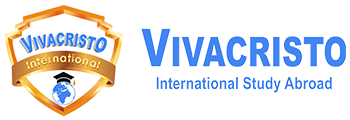
Student visas in Italy are issued by Italian Embassies or Consulate-General offices in your country of origin.
Italian universities are among the oldest universities in the world. Unlike in North America or Northern Europe where discussion-based teaching is highly emphasized, the structure of the higher education system in Italy is more formal, and most teaching in Italy takes place in large lecture halls. Students are also expected to complete a considerable amount of self-study hours outside the classroom in order to prepare for examinations.
Students from European Union (EU) or EFTA countries can enter Italy with a valid passport or EU ID card and can remain in Italy without a visa for the duration of their studies. Upon arrival, however, EU students must register at their local Questura station (police station) if their study program is longer than 3 months, in order to obtain a residence permit.
If you’re a non-EU student, you are required to obtain a student visa prior entering Italy. Use the information below to start the process of obtaining your Italian student visa!
International students who are EU nationals have the right to work in Italy alongside their studies but should not exceed 20 hours a week of work during regular study periods. However, you may take on more hours during vacation periods. Non-EU students may work during their studies if they obtain a work permit, which requires a job offer from an Italian-based employer – a slightly complicated process! Processing times vary between regions, but average around two months. International students coming from outside the EU shouldn’t rely on getting a job immediately upon arrival to Italy, focus on getting used to your new life in Italia!
The academic year is made up of two semesters. The first semester starts in September/October and ends in January/February. The second semester starts in February and ends in July. The actual start and finish dates of semesters, degree programs and examination periods in Italy vary in every university, but each academic semester lasts for roughly 20 weeks, made up of a 14-week teaching period and a 6-week examination period.
When applying to study a bachelor, master or PhD in an Italian university, there are several entry requirements that you should keep in mind.
In order to meet entry requirements for a bachelor's degree at an Italian university, you must successfully have completed upper secondary studies, have a valid school leaving certificate and qualify for higher education studies in your home country.
To study a master's degree at an Italian university, you will need to have a relevant bachelor or equivalent degree certification.
If your previous studies were not in English, you can prove your proficiency by taking a recognized English language test like TOEFL® or IELTS.
To meet entry requirements for a PhD at an Italian university, you need a relevant diploma or master degree program.
Once all you’ve confirmed that you meet the specific entry requirements for your program, it’s time to make your application!
Similar to the process of applying for student visas in Italy, there are different application procedures for applying to Italian universities depending on your country of origin and your current residency.
If you’re a European citizen, or non-EU citizen residing in Italy with a current and valid "permesso di soggiorno" you should apply directly to your university in Italy.
If you’re a non-EU citizen residing abroad, you should submit a pre-application request to the Italian Embassy or Consulate in your country of residence and indicate what institution and program you’re applying to. The officials will forward your documentation to the institution, and you should confirm with your institution how and when the results will be posted. Typically, results are either posted by the Embassy, or the institution will contact you directly.
